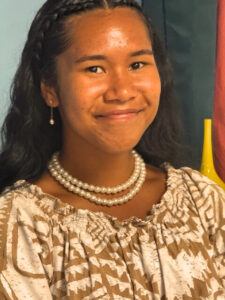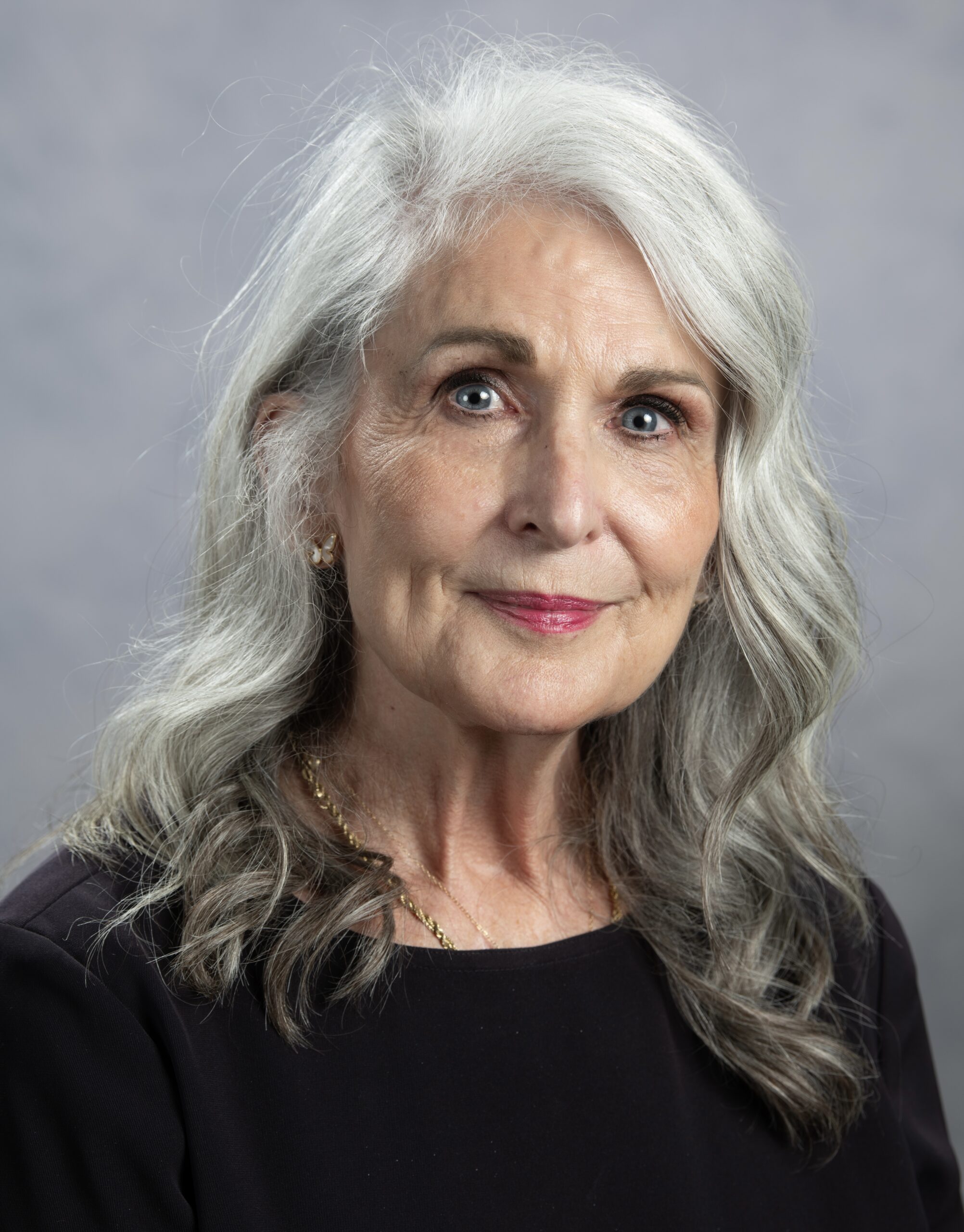When 22-year-old Josephine St. John stepped off the plane at Honolulu International Airport in March 2023, she thought she was simply arriving to begin her studies at Brigham Young University–Hawaiʻi. Born in Suva, Fiji’s capital, Josephine spent her childhood moving between islands before her family eventually settled in Labasa, in Fiji’s “friendly north.” By then, she was already familiar with change. What she didn’t know was that her arrival—along with other freshmen from Fiji—would be filmed for possible inclusion in a groundbreaking documentary, Sharing Aloha, written and directed by award-winning producer Blair Treu. Her friends had signed her up, and she assumed it was just for a short YouTube clip. Instead, she became part of an inspiring 95-minute feature film exploring the Polynesian Cultural Center (PCC) and its unique relationship with BYU–Hawaiʻi students.
Getting to Hawai‘i was no small feat. Months earlier, her family and community had rallied to raise the money for her airfare. They prepared and sold palusami—taro leaves filled with corned beef and coconut milk—along with chicken and root crops, all cooked in a traditional lovo, an underground oven lined with hot rocks. From preparing the food to cooking and selling it, the community effort in Labasa helped Josephine—the youngest of three children—become the first in her family to travel to the United States for college.
A Backstage Look at Hawaiʻi’s Most Popular Attraction
Sharing Aloha takes viewers behind the scenes of the Polynesian Cultural Center, Hawaiʻi’s most-visited paid attraction. The film addresses difficult questions raised about cultural appropriation and exploiting student labor. It reveals the dedication of cultural experts who ensure authentic representation of Polynesian traditions and the care, support and generous financial rewards students receive while employed at the PCC.
For example, the film explains Samoa’s cultural evolution from the ailao afi (traditional warrior knife dance) to the siva ailao afi (fire knife dance), which was added in the 1940s and is now a vibrant and accepted part of Polynesian culture.. It also highlights how the PCC provides not only employment but also education: while student employees earn minimum wage for 19 hours a week, the value of their tuition, housing, and board means their effective compensation is closer to $50 an hour—an arrangement that allows most students to graduate debt free.
Reflecting on her PCC work experience and participating in the film, Josephine said:
“I think the way I see it, it’s a blessing. Even though we all will face a few trials, it is worth it.”
Learning to Balance PCC Work and Studies
At first, balancing studies and work wasn’t easy. Josephine recalls:
“I’m majoring in sociology and minoring in psychology and anthropology. I was part of the new incoming students attending winter semester and didn’t know how to balance it all.”
Fresh off her mission in Fiji, she was confident in connecting with people but unsure how to add a job to her already full class schedule. Her first position was in the PCC’s dishwashing department, where she discovered warmth and mentorship among the aunties (older women) she worked with in culinary services. They not only helped her with forms and work routines but also welcomed her with kindness—and delicious free food from the lūʻau.
Becoming a Tour Guide
After a semester, Josephine successfully transitioned into a tour guide role. The training was rigorous—studying 85 pages of material, then passing a practical exam that not all applicants clear on their first try.
One of her favorite places to lead guests is the Fiji Village’s earth-oven cooking demonstration. There, she shares her personal story of how her family’s lovo cooking raised the money for her journey to Lāʻie.
For Josephine, the PCC is more than employment. It is a place where aloha is lived:
“I notice it in the way coworkers smile despite their trials, in the shared bond between cultures, and in guests’ comments. They often say they can feel that family is important here, and it makes them reflect on appreciating the little things.”
Remembering Roots with a Thankful Heart
Filming for Sharing Aloha continued beyond Josephine’s freshman year, capturing her growth and challenges. At first, she felt awkward in front of cameras, joking with friends who called her a “movie star.” Over time, she began to see the deeper purpose:
“One of the greatest things the film changed for me is making me realize how important your culture is—where you came from, your future plans, and your goals. Hearing others’ stories in the film also made me reflect on my own.”
She hasn’t yet been able to show the movie to her family back in Fiji, but she knows they would be proud. She hopes one simple message will resonate with them and all the people who experience the documentary:
“No matter how far you go in life, always remember your roots.”
Josephine remains grateful:
“I never want to forget where I started. Every step, every person along the way, has been part of my blessing.”

